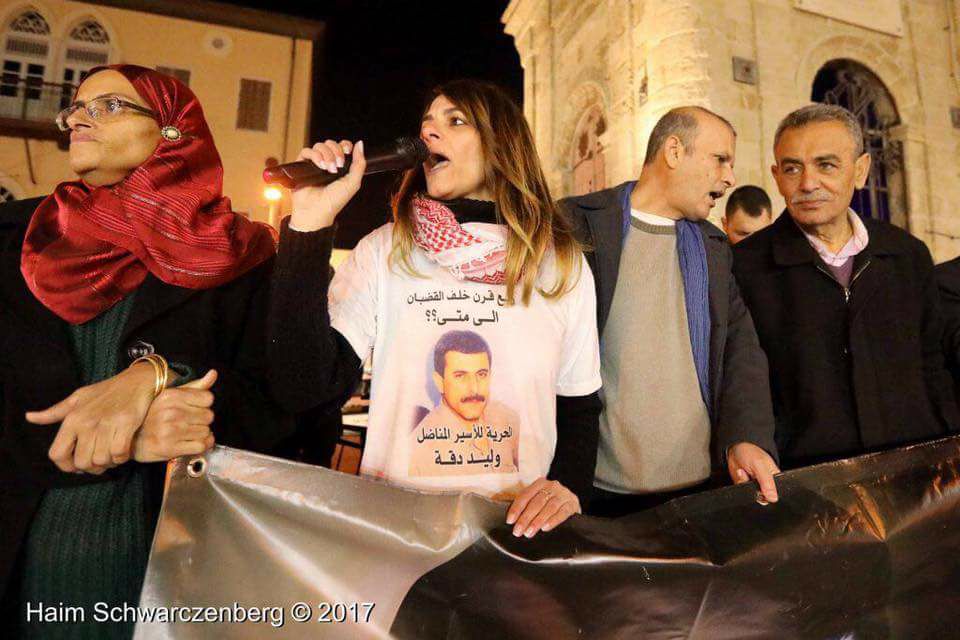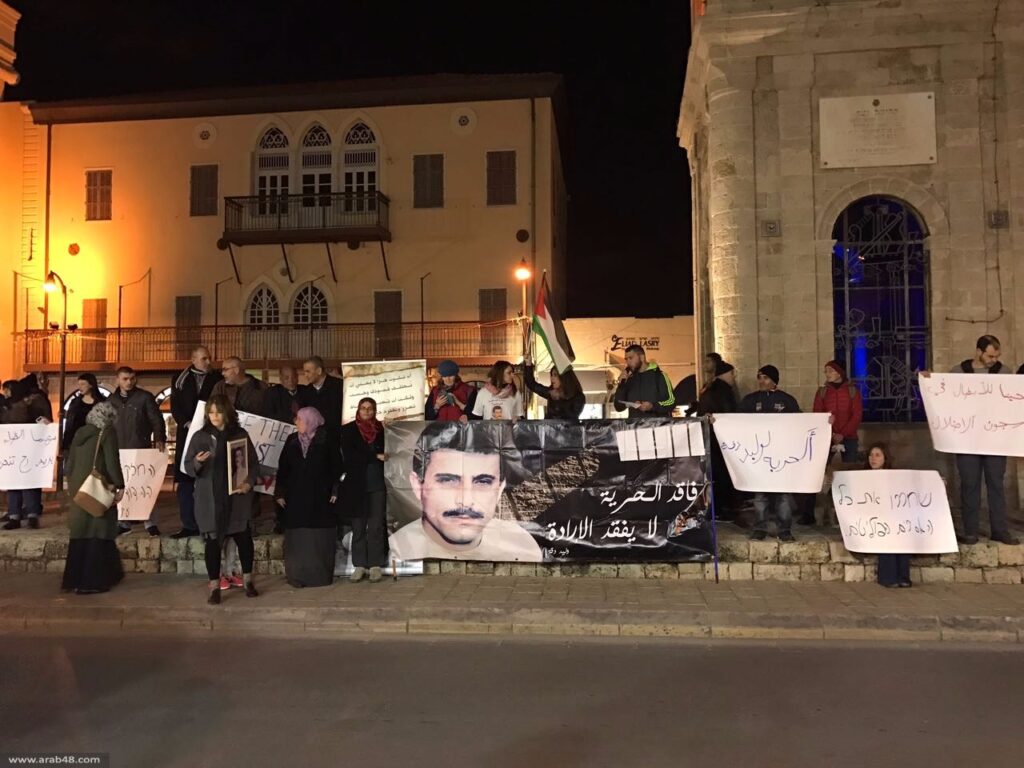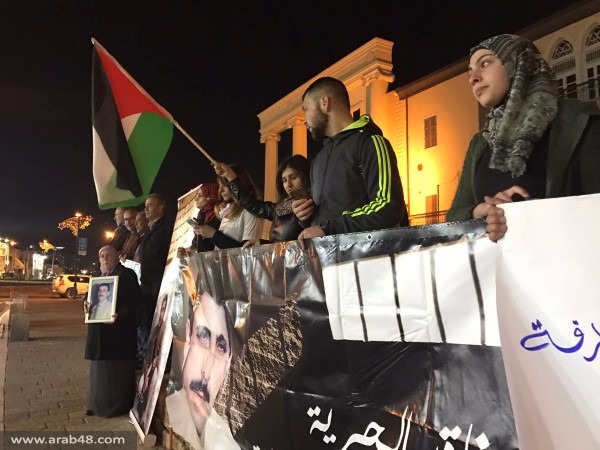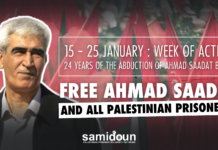
Long-time Palestinian prisoner Walid Daqqa continues to be held in solitary confinement for the fourteenth day; Daqqa, 55, from the town of Baqa al-Gharbiyeh is a pre-Oslo prisoner who has been held in Israeli jails since 25 March 1986.
He was suddenly transferred into solitary confinement on 25 January 2017, accused of unauthorized correspondence with his lawyer. He is suffering from a number of health problems. His lawyer, Ahmed Khalifa, said that he needs hospitalization and the prison clinic cannot provide proper treatment for him, emphasizing that isolation puts him at further risk of deterioration of his health. He requires treatment for an excessive red blood cell count twice weekly, which is not being provided; for him to visit a hospital requires a lengthy trip in the so-called “Bosta,” the metal prison transport van, which can take up to 48 hours with many stops and a lack of access to basic facilities.
 A prominent leader in the prisoners’ movement over the years, Daqqa’s writings about the prison experience have been published and widely circulated. The play, “A Parallel Time” – the subject of an Israeli state campaign against a Palestinian theater in Haifa in 2015 – reflects Daqqa’s stories and experiences.
A prominent leader in the prisoners’ movement over the years, Daqqa’s writings about the prison experience have been published and widely circulated. The play, “A Parallel Time” – the subject of an Israeli state campaign against a Palestinian theater in Haifa in 2015 – reflects Daqqa’s stories and experiences.
He and his comrades, Ibrahim and Rushdi Abu Mukh and Ibrahim Bayadseh, have been jailed for over 30 years and are sentenced to life sentences for their involvement in a Palestinian resistance operation targeting an Israeli occupation soldier. Despite multiple pledges to release pre-Oslo prisoners, the Israeli state has refused to release Daqqa and his comrades, insisting that as they are Palestinians holding Israeli citizenship, they are a separate matter from their fellow 7,000 Palestinian prisoners.
The isolation of Daqqa comes as he has been brought into the Israeli allegations against Palestinian Knesset member Basel Ghattas of the National Democratic Alliance (Balad/Tajammu’) along with Daqqa’s brother Assad, accused of bringing cell phones into Israeli prisons for Palestinian political prisoners. On the same day Walid Daqqa was isolated, his brother As’ad was brought before an Israeli district court; As’ad Daqqa is accused of providing the alleged cell phones to Ghattas. As’ad Daqqa was ordered to house imprisonment in Baqa on 1 February.
Daqqa’s wife, Sana Salameh – who he married while imprisoned in 1999 – called upon the United Nations’ Secretary-General, Antonio Guterres, to “pressure the occupation to remove the captive Walid Daqqa, who is suffering from a serious health issue, from solitary confinement.” His comrades in the Popular Front for the Liberation of Palestine’s Prison Branch issued a statement saying that “We hold the occupation and its prison administration fully responsible for the life and safety of Comrade Walid Daqqa and see this isolation as an attempt to sentence him to slow death.”
 Events are being organized in various cities highlighting Daqqa’s isolation and demanding his release from solitary confinement. A protest in Yafa on 2 February called for his release; participants included family members as well as Knesset members Jamal Zahalka and Osama Saadi.
Events are being organized in various cities highlighting Daqqa’s isolation and demanding his release from solitary confinement. A protest in Yafa on 2 February called for his release; participants included family members as well as Knesset members Jamal Zahalka and Osama Saadi.
Discover more from Samidoun: Palestinian Prisoner Solidarity Network
Subscribe to get the latest posts sent to your email.




